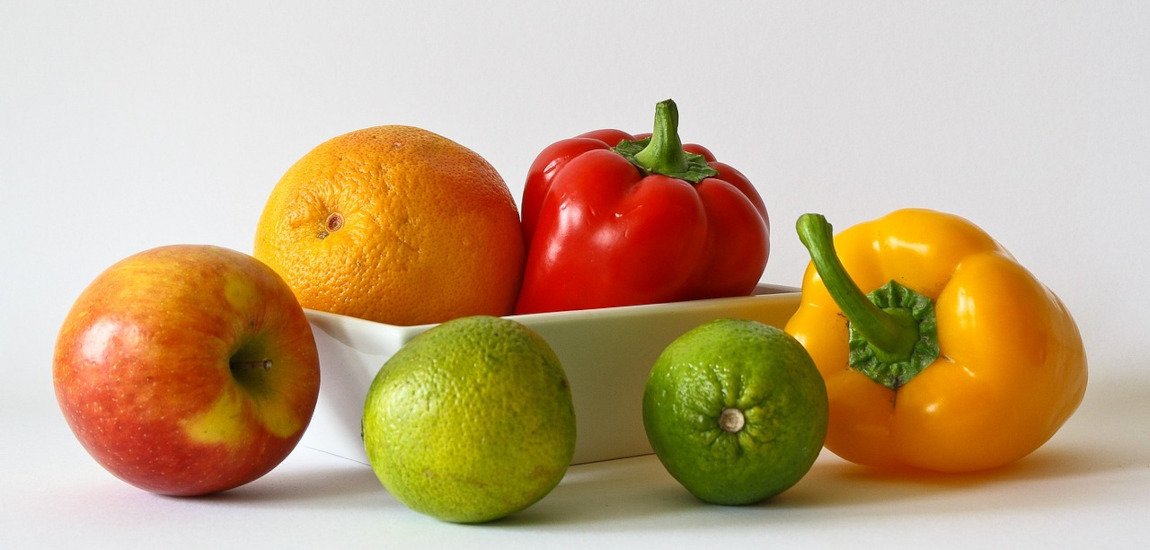

In an age where fast food and processed meals dominate our daily diets, the importance of consuming vegetables and fruits cannot be overstated. These natural wonders offer a myriad of health benefits, making them essential components of a balanced and nutritious diet. In this article, we will explore the significance of vegetables and fruits in healthy eating, focusing on the numerous advantages they bring to our overall well-being.
The Nutritional Powerhouses
Vegetables and fruits are the true nutritional powerhouses in our diets. They provide essential vitamins, minerals, fiber, and antioxidants that our bodies require to function optimally. Let's delve into some of the key nutrients found in these natural wonders:
- Vitamins: Vegetables and fruits are rich in vitamins, including vitamin C, vitamin A, vitamin K, and various B vitamins. These vitamins are essential for various bodily functions, such as maintaining a healthy immune system, promoting proper cell growth, and ensuring good vision.
- Minerals: Minerals like potassium, magnesium, and calcium are abundant in many fruits and vegetables. These minerals are crucial for maintaining healthy bones, regulating blood pressure, and supporting proper muscle and nerve function.
- Fiber: Fiber is a crucial component of vegetables and fruits, and it plays a significant role in digestion. Dietary fiber helps prevent constipation, regulates blood sugar levels, and supports weight management by promoting a feeling of fullness.
- Antioxidants: Many fruits and vegetables are packed with antioxidants like flavonoids, carotenoids, and polyphenols. These compounds help protect our cells from damage caused by free radicals and reduce the risk of chronic diseases, such as heart disease, cancer, and diabetes.
Health Benefits of Consuming Vegetables and Fruits
The regular consumption of vegetables and fruits offers a wide range of health benefits, which include:
- Weight Management: Vegetables and fruits are low in calories and high in fiber, making them excellent choices for those looking to manage or lose weight. Their high water content also contributes to a feeling of fullness, reducing the likelihood of overeating.
- Heart Health: The fiber, potassium, and antioxidants in fruits and vegetables have a positive impact on heart health. They help lower blood pressure, reduce cholesterol levels, and decrease the risk of cardiovascular diseases.
- Digestive Health: The fiber in vegetables and fruits promotes regular bowel movements and prevents constipation. It also supports a healthy gut microbiome, which is essential for digestion and overall well-being.
- Reduced Risk of Chronic Diseases: The antioxidants in these foods help protect against chronic diseases by reducing oxidative stress and inflammation. Regular consumption has been linked to a decreased risk of conditions like cancer, diabetes, and Alzheimer's disease.
- Skin Health: The vitamins and antioxidants found in fruits and vegetables contribute to healthy, radiant skin. Vitamin C, in particular, plays a significant role in collagen production, helping to maintain skin elasticity and reduce the signs of aging.
- Improved Immune Function: Fruits and vegetables are rich in vitamin C, which is known for its immune-boosting properties. Consuming these foods can help the body fight off infections and illnesses.
Practical Tips for Increasing Vegetable and Fruit Consumption
While it's clear that vegetables and fruits are essential for our health, many people struggle to incorporate them into their daily diets. Here are some practical tips to help increase your intake of these nutritious foods:
- Start with Small Changes: Gradually add vegetables and fruits to your meals. Start with a side salad or a piece of fruit for dessert.
- Experiment with Variety: Explore different types of vegetables and fruits. Try a new one every week to discover what you enjoy.
- Make Smoothies: Blend fruits and vegetables into delicious smoothies for a convenient and tasty way to increase your intake.
- Snack on Fruits and Veggies: Keep a bowl of fruit on your kitchen counter and cut-up veggies in the fridge for quick and healthy snacks.
- Use Vegetables as Main Dishes: Create vegetable-based dishes like stir-fries, veggie burgers, or stuffed peppers.
- Frozen and Canned Options: When fresh produce is not available, opt for frozen or canned vegetables and fruits without added sugars or salt. They can be just as nutritious.
Final Thoughts
Vegetables and fruits are not merely side dishes; they are the foundation of a healthy diet. Their abundance of essential nutrients and health benefits make them indispensable for our well-being. By incorporating more vegetables and fruits into your daily meals, you can take significant steps toward improving your health, reducing the risk of chronic diseases, and enjoying a longer, more vibrant life. So, make it a point to celebrate the goodness of nature by savoring the rich and colorful palette of vegetables and fruits on your plate. Your body will thank you for it!
 Ascorbine.Info
Ascorbine.Info Ascorbine.Info
Ascorbine.Info











